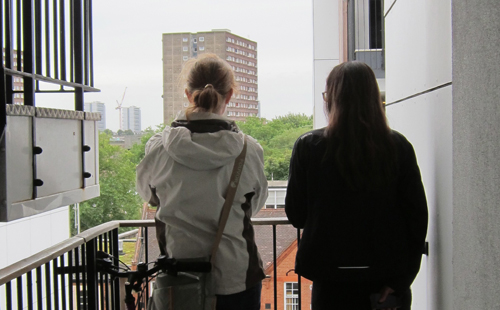Written by:
By Robert Johnson
Do the right people have power in place? Who has the power to transform place?
As a member of a number of institutions, I recognise that power is traditionally held in the hands of the few, not the many. As a member of North London Citizens and Citizens UK, I am taught that Civil Society is as equally important as the public sector (e.g. Central and Local Government and other government bodies) and the private sector. However as a normal citizen I am not normally encouraged to act, but seek to request change from the powers that be, hoping that our views are taken into account!
At Citizens UK we are encouraged that power is the ability to act! That means we all have the power and it is not just concentrated in the hands of the few! So the answer is that the people living in and around the area where change needs to be affected must have a say in what is delivered locally. This will include the local authority who is responsible for maintaining public spaces, it will include the local people who will be affected most by any change in the area and the businesses that help to support the economy of the area. Power is also concentrated in the designers of space – they have the ability to influence processes and get scheme approval from the planning department – so local people working with the designers of space/place will need to ensure that they let their voices be heard in what they would like for the area and also what they do not like.
Who has the right to make decisions about the future of our places/spaces? Who are the right people?
Well that depends – one would expect that those people who live/work in the place/space should have the right to make the decision – but equally the statutory authorities (the local authority, Mayor, utility authorities etc.) will also have a say and, more importantly, they are likely to have final say. But how do you ensure that there is consensus on the final product that may be delivered? What do the community of residents and workers feel?
My contention is that all people have power – they can choose to exercise it or not exercise it depending on their level of anger/passion. So the right people have the power – but they will need to be organised and strategic in how they go about affecting change for their area – to put their power in place.
This requires a “power structure” – to make things happen an alliance should be organised. The alliance will be a collective of people with an interest in the area. It should provide the focus and structure to support the alliance’s cause. It should be time bound and specifically focused (project-based). The body should not sit within an existing organisation, but should be a conglomeration of people who have a self interest. The new body should be small, nimble and there to support and lead the alliance until the project is completed – however this body should be able to demonstrate its power with the numbers it can generate (of e.g. local residents, children, schools, churches, community groups) if a meeting is to be called to challenge the decision makers and recognised power structures.
This approach is based on the notion of cultural change, of a movement of people and organisations standing up and saying that their issue is important (in this context, place and space) and that they are willing and want to work together with others to make great places a reality for everyone.
Robert Johnson is a trustee of The Glass-House and a member of North London Citizens and Citizens UK. He has over 30 years experience working in the Housing and Regeneration field and has led projects involving masterplanning, procurement, decanting and rehousing, housing management, governance issues, stock and land transfers, as well as resident empowerment and capacity building.

